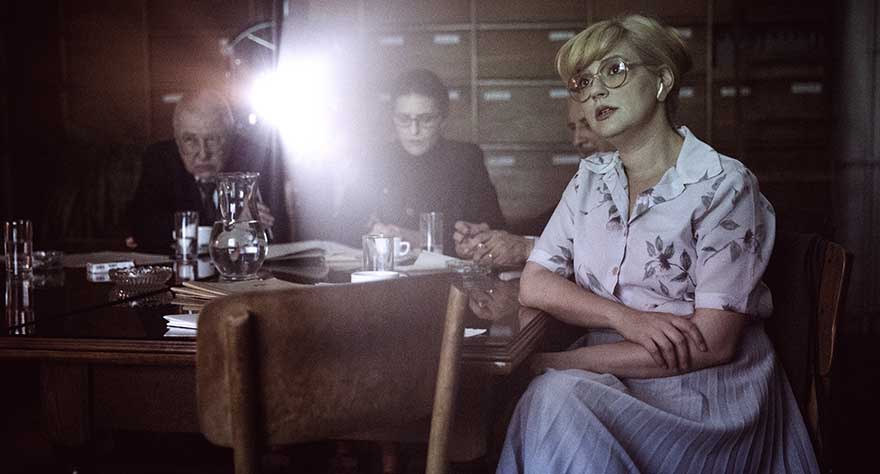
This is more than a documentary; it is a history lesson decorated in nostalgia.

This is more than a documentary; it is a history lesson decorated in nostalgia.
I am proud to say I was there for the birth of the Video Party Era.
If you are unfamiliar, in the early days of VHS, when players were not as common as they would eventually become, kids whose parents owned VCRs would host video parties. The setup was simple: take about a dozen high schoolers, feed them all the pizza, snacks, and soda that could fit on a kitchen table, and huddle them around a TV, where ’80s VHS rental staples—from slasher flicks to T&A comedies—played until curfew. It was glorious. While I presumed then that such parties were happening around the country, I didn’t realize (in my adolescent naïveté) they were going on around the world. What I also didn’t realize was how different, how amazing, and how critical certain Eastern European video parties were to the people attending them.
In Romania circa 1985, the Communist regime of Nicolae Ceausescu was in its 20th year, bringing to a close a second decade of stifling oppression. There was speech, but it wasn’t free. There was media, but it wasn’t independent. There was TV, but it wasn’t much: one channel ran two hours of state-controlled programming each day. That was it.
The residents knew of movies, but all they were permitted to see were state-edited films, most of which originated from parts of the world other than the West, and those films were only shown in state-run theaters. This drove some people to purchase illegal VCRs and bootleg tapes on the black market. Those people would then invite other people—for an admission price—to secretly watch movies in cramped apartments all night long. Romania’s film-lovers of all ages found the experience to be glorious.
With tales of VHS parties and a collection of clips from ’80s movies any US film buff would recognize (including quintessential titles like Top Gun, Dirty Dancing, The Terminator, and more), Chuck Norris vs. Communism positions itself to be an exercise in nostalgia. With its geopolitical backdrop and Cold War era position on the timeline, the film also wants to be a history lesson. It does both well, but it’s when it goes deeper into those areas that it shifts into a more powerful gear.
From the historical perspective, Calugareanu takes needed time to tell the stories of two figures of great consequence to the success of the underground VHS movement and that movement’s importance. The first story is that of Teodor Zamfir, the man responsible for pirating the tapes in the first place. At the height of his considerable influence, he was using 360 VCRs to create copies of tapes he would sell for enormous profits.
The other story is that of Irina Nistor, the woman who dubbed all the voices on all the tapes, male and female. It was her voice every Romanian came to know through multiple (and repeat) viewings of every tape they could lay their hands on. Her voice became such a prominent feature of the underground tape scene that when a man was brought in to help her dub films because the volume of recordings she had to work on was growing too high, Romanian viewers dismissed those tapes as bootlegs of bootlegs, and were somehow inferior to the Nistor tapes.
As for the importance of the movement, the tapes represented a window to the West for the oppressed people of Romania, and the films offered those people hope there was better living out there somewhere, and maybe they had a shot of living that better life, too.
But it’s the added nostalgia facet that makes the film special. Rather than round up the usual suspects of movie experts and film historians, Calugareanu lets the story be told by the people who helped make the story in the first place: the citizens of Romania who hosted and/or attended illegal video parties in the 1980s. Having these stories told in the first-person turns the interesting into the fascinating, and as these folks dig deeper into their memories, they tap into an incredible sense of joy and wonder for the past that took me back to my own early movie-watching days and those video parties of my teenage years.
As someone who not only lived through the ’80s but still revisits its like-totally-awesomeness via film on a regular basis, I found Chuck Norris vs. Communism to be more than a fascinating documentary; I found it to be a history lesson, decorated in nostalgia, telling the story of people who were more like us than we ever realized, at a time in our country’s history when we thought they couldn’t be more different.